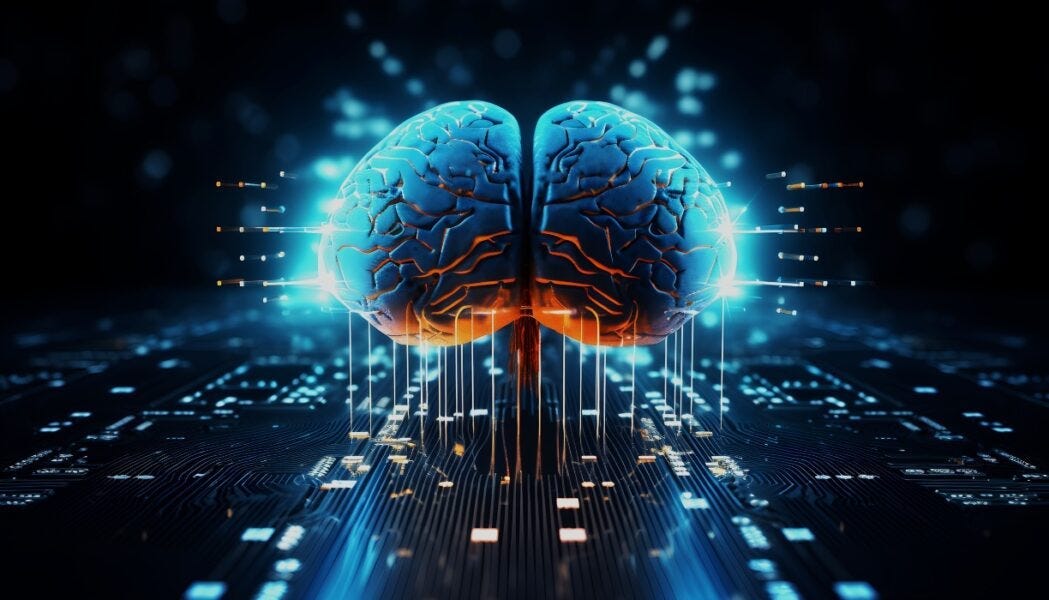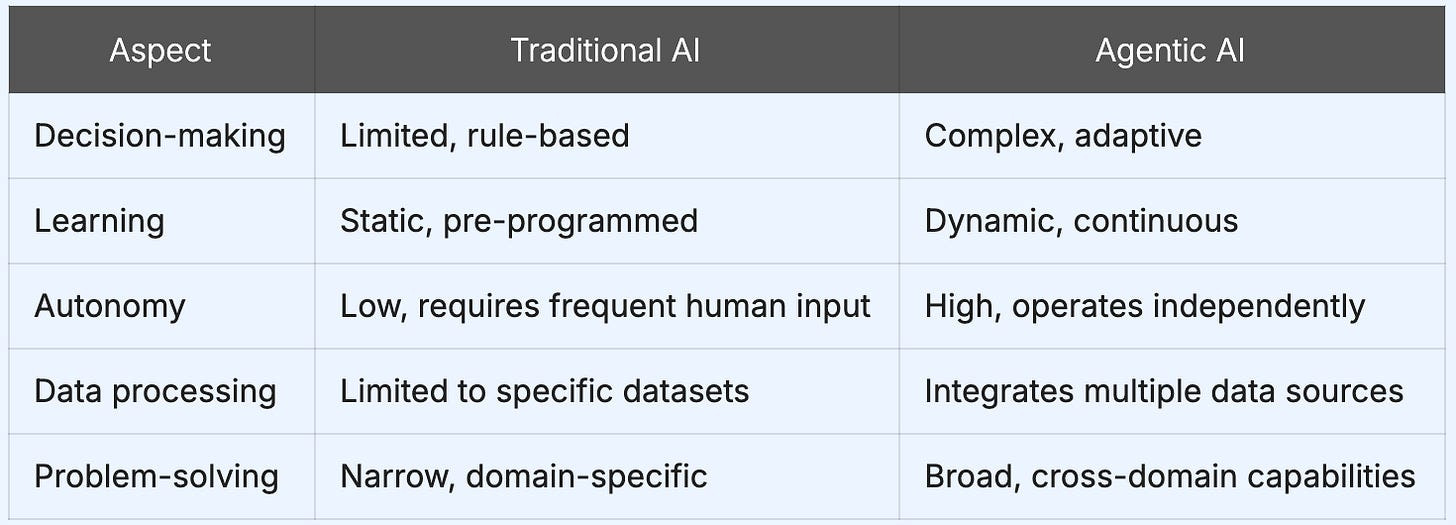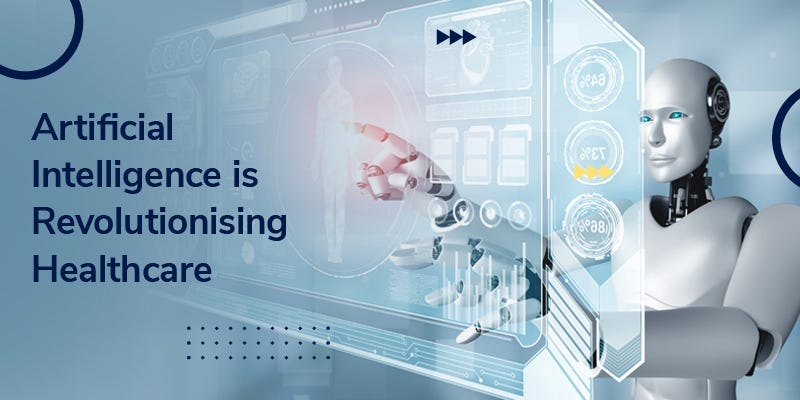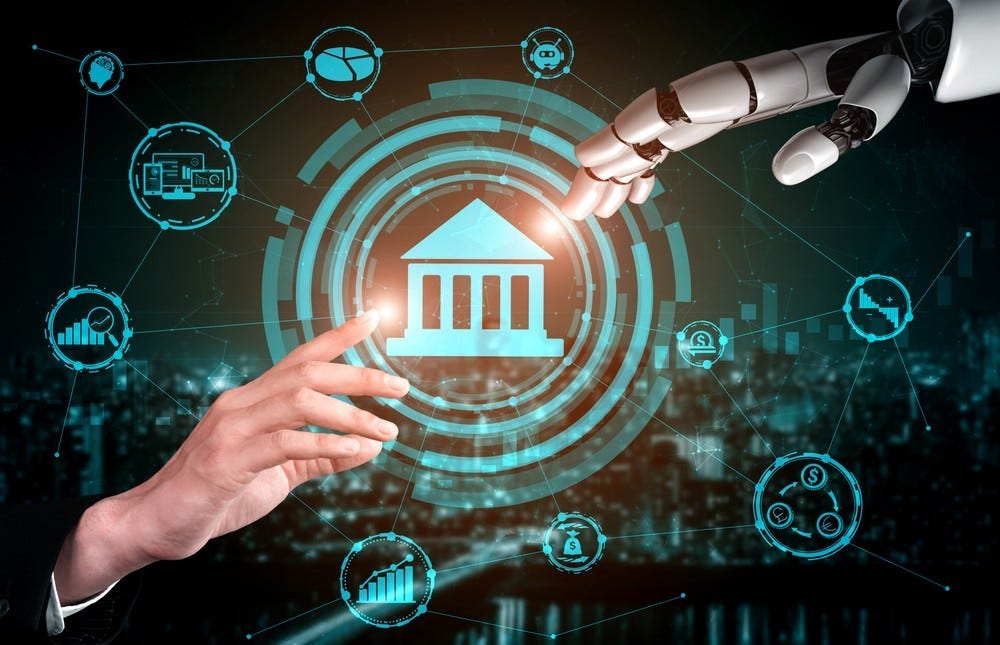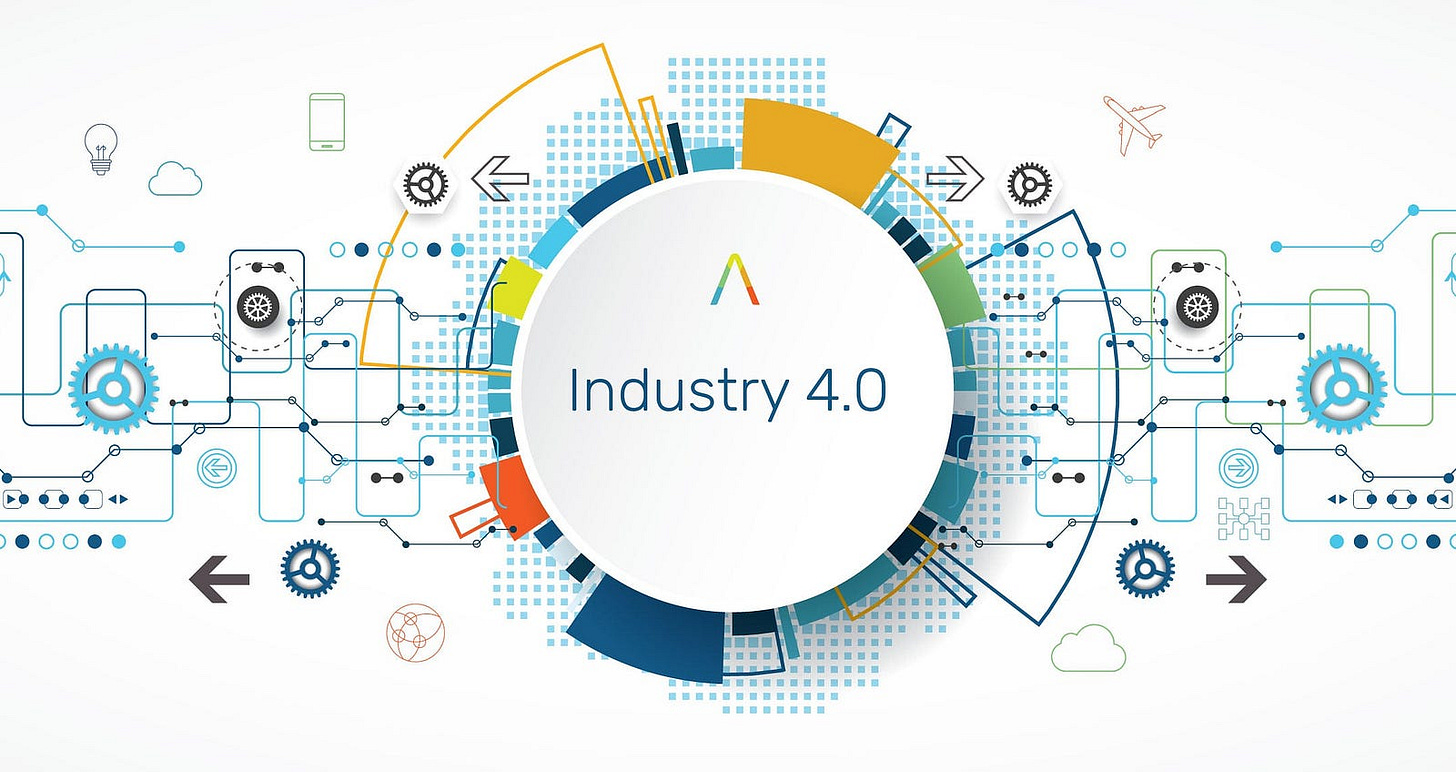8 Real-World Applications of Agentic AI You Need to Know
Imagine a world where AI doesn’t just process data, but thinks, acts, and learns autonomously. 🤖
This isn’t science fiction — it’s the reality of agentic AI, and it’s revolutionizing industries across the globe. From healthcare to finance, education to environmental conservation, this cutting-edge technology is reshaping how we live, work, and interact with the world around us.
But what exactly is agentic AI, and how is it transforming our daily lives? 🤔 Unlike traditional AI systems, agentic AI possesses the ability to perceive its environment, make decisions, and take actions independently. It’s not just responding to pre-programmed commands; it’s adapting, evolving, and solving complex problems in real-time. This leap in artificial intelligence is opening doors to innovations we once thought impossible.
In this blog post, we’ll dive into 9 real-world applications of agentic AI that are changing the game right now. From personalizing your healthcare experience to optimizing global supply chains, these examples will demonstrate just how profoundly this technology is impacting our world. Whether you’re a tech enthusiast, a business leader, or simply curious about the future, understanding these applications is crucial in our rapidly evolving digital landscape. Let’s explore how agentic AI is not just a buzzword, but a powerful force shaping our future. 🚀
Understanding Agentic AI
A. Definition and key characteristics
Agentic AI refers to autonomous artificial intelligence systems capable of independent decision-making and action. These advanced AI agents possess enhanced analytical, reasoning, and learning abilities, allowing them to operate with minimal human intervention. Key characteristics of agentic AI include:
Autonomy in goal-setting and process design
Ability to optimize workflows independently
Continuous learning from experiences
Sophisticated decision-making capabilities
Agentic AI systems are powered by large language models (LLMs) like GPT-3 and GPT-4, which enable:
Nuanced comprehension of complex instructions
Generation of human-like text
Meaningful conversation and collaboration
Analysis of extensive data sets
Generation of insights and predictions
B. How it differs from traditional AI
Agentic AI represents a significant leap forward from traditional AI systems. Here’s a comparison:
C. The importance of autonomy in AI systems
Autonomy is crucial for agentic AI systems as it enables:
Efficient problem-solving without constant human oversight
Rapid adaptation to new situations and environments
Seamless integration with enterprise systems (CRM, ERP, HR)
Real-time data-driven decision-making
Continuous optimization of processes and workflows
The autonomous nature of agentic AI is supported by advancements in machine learning algorithms, increased computational power, and reinforcement learning techniques. These innovations allow AI agents to improve through interaction and feedback, optimizing their decision-making in complex environments.
With this understanding of agentic AI, we can now explore its real-world applications. Next, we’ll delve into the Healthcare Revolution, examining how agentic AI is transforming patient care, diagnostics, and medical research.
Healthcare Revolution
Now that we’ve covered the fundamentals of Agentic AI, let’s explore how this technology is revolutionizing healthcare. The healthcare sector, which generates 30% of the global data volume, presents significant opportunities for AI integration, particularly in improving patient outcomes and streamlining operations.
Personalized treatment plans
Agentic AI enhances decision support by providing real-time treatment recommendations based on comprehensive data analysis. By integrating with various systems to collect extensive patient information from electronic health records and wearable devices, it facilitates a holistic view of patient health. This enables healthcare professionals to develop highly personalized treatment plans, particularly beneficial in managing chronic conditions.
Robotic surgery assistants
While not explicitly mentioned in the reference content, the integration of AI in surgical procedures is a logical extension of its capabilities in healthcare. Agentic AI could potentially enhance robotic surgery by:
Analyzing real-time surgical data
Providing decision support during procedures
Optimizing surgical techniques based on historical data
Drug discovery acceleration
Agentic AI is transforming drug discovery by expediting the identification and evaluation of potential drug candidates. This application significantly reduces the time and costs associated with bringing new treatments to market. The technology’s ability to analyze vast amounts of data and identify patterns makes it particularly effective in this area.
Mental health support chatbots
AI-powered chatbots are emerging as valuable tools for mental health support. These chatbots can:
Provide 24/7 support to patients
Offer personalized interventions based on user interactions
Assist in early detection of mental health concerns
Despite its transformative potential, the implementation of Agentic AI in healthcare faces challenges, including:
Data privacy and security concerns
Ethical implications of autonomous decision-making
Integration complexities with existing healthcare systems
Ensuring accuracy and reliability of AI algorithms
Looking ahead, the future of Agentic AI in healthcare is promising, with potential advancements including:
Integration with wearable devices for real-time health monitoring
Evolution of precision medicine
Expanded remote patient monitoring capabilities
Greater collaboration between AI systems and healthcare professionals
With this revolution in healthcare, we can now turn our attention to how Agentic AI is transforming financial services, another sector poised for significant disruption and innovation.
Financial Services Transformation
Now that we have explored the revolutionary impact of Agentic AI in healthcare, let’s turn our attention to another sector experiencing significant transformation: financial services.
A. Automated trading systems
Agentic AI is revolutionizing the financial industry through advanced automated trading systems. These systems leverage sophisticated algorithms and machine learning models to:
Analyze vast amounts of market data in real-time
Execute trades autonomously based on predefined strategies
Adapt to changing market conditions without human intervention
This technology enables financial institutions to:
B. Fraud detection and prevention
Agentic AI plays a crucial role in strengthening financial security through advanced fraud detection and prevention mechanisms:
Continuous monitoring of transaction patterns
Real-time identification of anomalies and suspicious activities
Self-learning systems that adapt to evolving fraud tactics
These capabilities allow financial institutions to:
Enhance risk management
Protect customer assets
Maintain regulatory compliance
C. Personalized financial advice
The integration of Agentic AI in financial services has paved the way for highly personalized financial advice:
Analysis of individual customer data and behavior
Tailored product recommendations and investment strategies
Real-time assistance through AI-powered chatbots
This personalization leads to:
Improved customer satisfaction and loyalty
Enhanced user experiences
More informed decision-making for customers
Agentic AI’s ability to process vast amounts of data and provide actionable insights has transformed the financial services landscape. By automating complex tasks, offering real-time analytics, and delivering personalized experiences, financial institutions can optimize their operations and better serve their customers.
With this transformation in financial services, we can now explore how Agentic AI is enhancing customer service across various industries.
Enhanced Customer Service
Now that we have explored the transformation of financial services through Agentic AI, let’s delve into how this technology is revolutionizing customer service across various industries.
Intelligent chatbots and virtual assistants
Agentic AI has paved the way for sophisticated chatbots and virtual assistants that go beyond simple task automation. These intelligent systems can:
Provide 24/7 availability for customer support
Engage in natural language conversations
Adapt to changing conditions and customer needs
Handle complex, multi-step processes autonomously
Unlike traditional AI, agentic chatbots can reason, plan, and make decisions, operating similarly to human employees. This advancement allows businesses to:
Minimize disruptions in existing infrastructures
Enhance service capabilities
Drive operational efficiency
Predictive customer support
Agentic AI systems excel at collecting and analyzing valuable data, enabling businesses to anticipate customer needs proactively. This predictive approach to customer support offers several benefits:
By leveraging these capabilities, companies can significantly improve customer satisfaction and loyalty.
Personalized product recommendations
The autonomous nature of Agentic AI allows for highly personalized product recommendations across various sectors:
Retail: Tailored shopping experiences and omnichannel support
Insurance: Customized policy recommendations
Healthcare: Personalized treatment plans based on medical history
These AI-driven systems continuously learn from customer interactions, refining their recommendations over time. This leads to:
Increased conversion rates
Improved customer retention
Enhanced overall customer experience
With this enhanced customer service capability, businesses can foster stronger relationships with their clients while optimizing operational efficiency. As we move forward, we’ll explore how Agentic AI is transforming another crucial sector: Smart Manufacturing and Industry 4.0, where autonomous systems are reshaping production processes and supply chain management.
Smart Manufacturing and Industry 4.0
Now that we have explored how Agentic AI enhances customer service, let’s delve into its transformative impact on manufacturing and Industry 4.0. The integration of Agentic AI in smart manufacturing is revolutionizing the sector, improving efficiency, quality, and sustainability.
A. Autonomous quality control
Agentic AI employs real-time data analysis to detect defects early in the manufacturing process. This continuous monitoring ensures high product quality and reduces waste, ultimately leading to cost savings and improved customer satisfaction.
B. Predictive maintenance
By leveraging advanced analytics and IoT devices, Agentic AI enables proactive maintenance strategies. This approach helps manufacturers:
Minimize downtime
Reduce operational costs
Extend equipment lifespan
Optimize resource allocation
C. Supply chain optimization
Agentic AI streamlines supply chain management through:
Accurate demand forecasting
Intelligent inventory management
Real-time decision-making support
These capabilities result in faster product delivery times and improved availability of goods for customers.
D. Collaborative robots (cobots)
The integration of Agentic AI with collaborative robots enhances workforce productivity and safety. Cobots can:
Agentic AI in smart manufacturing operates through a systematic approach:
Data collection via IoT devices
Analysis to identify inefficiencies
Execution of decisions by automated systems
This process contributes to sustainability efforts by reducing emissions and conserving resources. However, successful implementation requires careful management and a readiness strategy, including assessing current operations, investing in technology, and training staff.
As we transition from smart manufacturing to the next section on autonomous vehicles and transportation, it’s clear that Agentic AI’s impact extends far beyond the factory floor. The principles of real-time data analysis, predictive capabilities, and autonomous decision-making that we’ve explored in manufacturing are equally transformative in revolutionizing how we move people and goods.
Autonomous Vehicles and Transportation
Now that we’ve explored the impact of agentic AI on smart manufacturing and Industry 4.0, let’s shift our focus to how this technology is revolutionizing the transportation sector, particularly in the realm of autonomous vehicles.
A. Self-driving cars and trucks
Agentic AI is at the forefront of developing autonomous vehicles, utilizing real-time data analytics and machine learning algorithms to optimize routes and improve safety. These intelligent systems continuously collect and analyze data from various connected sources, enabling:
Predictive analytics for traffic patterns
Dynamic route optimization
Enhanced fuel efficiency
Improved journey predictability
The integration of agentic AI in self-driving vehicles promises to reduce operational costs and enhance user satisfaction through personalized services.
B. Traffic management systems
AI-powered traffic management systems are transforming urban mobility by:
Utilizing real-time data to monitor traffic patterns
Autonomously adjusting traffic signals to optimize flow
Reducing congestion and improving overall transportation efficiency
These systems operate in a collaborative multi-agent environment, where various AI agents work together to create a responsive transportation network that meets the demands of modern society.
C. Last-mile delivery optimization
Agentic AI is revolutionizing the logistics industry, particularly in last-mile delivery:
Freight load optimization: AI agents analyze package dimensions, destinations, and vehicle capacity to maximize efficiency.
Autonomous scheduling: Systems dynamically adjust delivery routes based on real-time traffic and weather conditions.
Dynamic route optimization: AI continuously recalculates the most efficient paths for delivery vehicles.
These applications not only increase operational efficiency but also contribute to reducing the environmental impact of transportation by optimizing fuel consumption and minimizing unnecessary journeys.
As we look ahead to the future of transportation, the ongoing investment and adoption of AI innovations aim to create a more efficient, sustainable, and customer-centric travel experience. With this in mind, next, we’ll explore how agentic AI is transforming another crucial sector: education and personalized learning.
Education and Personalized Learning
Now that we’ve explored how agentic AI is revolutionizing autonomous vehicles and transportation, let’s shift our focus to another crucial sector where this technology is making significant strides: education and personalized learning.
A. Adaptive learning platforms
Agentic AI is transforming the educational landscape by enabling the development of sophisticated adaptive learning platforms. These platforms leverage AI to analyze vast amounts of learning assessment data, providing actionable insights for educational improvement. For instance, the Global Data Science Challenge (GDSC) initiated by Capgemini, UNESCO, and AWS aimed to create an agentic AI system capable of analyzing the PIRLS 2021 dataset, which covers reading literacy across 57 countries.
This initiative demonstrates how AI can process data from hundreds of thousands of students to discern educational trends and performance metrics. The winning team, insAIghtED, developed an AI system that integrated multiple data sources, including GDP and population statistics, to offer nuanced educational insights and visualizations.
B. Automated grading and feedback
Agentic AI systems are enhancing the efficiency and accuracy of grading processes while providing timely and personalized feedback to students. By leveraging advanced AI technologies, such as those offered by AWS (Amazon Bedrock and SageMaker), educational institutions can develop models capable of processing extensive datasets to evaluate student performance.
These AI-driven systems not only streamline the grading process but also offer insights that can help educators tailor their teaching methods to individual student needs. This personalized approach aligns with the goal of ensuring inclusive and equitable quality education for all, as emphasized in Sustainable Development Goal 4.
C. Virtual tutors and mentors
The integration of agentic AI in education has paved the way for the development of virtual tutors and mentors. These AI-powered assistants can provide personalized guidance and support to students, complementing traditional teaching methods. By analyzing individual learning patterns and preferences, virtual tutors can offer tailored recommendations and resources to enhance the learning experience.
Furthermore, the establishment of smart classrooms, such as the 40 implemented in Pakistan to benefit 3,000 girls, showcases how AI can be utilized to create immersive and interactive learning environments. These advancements in educational technology are crucial steps towards democratizing access to quality education and promoting lifelong learning opportunities for all.
As we look ahead to the next section on environmental monitoring and conservation, it’s clear that the applications of agentic AI extend far beyond the classroom. The same data analysis and predictive capabilities that are revolutionizing education can also be harnessed to address pressing environmental challenges, demonstrating the versatility and potential of this transformative technology
Environmental Monitoring and Conservation
Now that we’ve explored how agentic AI is revolutionizing education and personalized learning, let’s turn our attention to its applications in environmental monitoring and conservation. The autonomous decision-making capabilities of agentic AI are proving invaluable in addressing pressing ecological challenges.
A. Wildlife tracking and protection
Agentic AI systems are enhancing wildlife conservation efforts through sophisticated tracking and protection measures. These systems can:
Analyze real-time data from IoT sensors
Make autonomous decisions for wildlife protection
Adapt to changing environmental conditions
B. Climate change prediction models
Leveraging the power of large language models (LLMs), agentic AI is improving climate change prediction models. Key benefits include:
Processing vast amounts of climate data
Generating more accurate long-term forecasts
Facilitating better-informed policy decisions
D. Pollution detection and mitigation
Multi-agent AI systems are collaborating to detect and mitigate pollution more effectively. These systems can:
Monitor air and water quality in real-time
Identify pollution sources autonomously
Develop and implement mitigation strategies
As we’ve seen, agentic AI is playing a crucial role in environmental monitoring and conservation. However, it’s important to note that these systems also raise ethical concerns and potential risks, such as data privacy issues and the need for human oversight. With this in mind, next, we’ll explore how agentic AI is transforming security and surveillance, where similar considerations of efficiency and ethical implementation come into play.
C. Smart energy management systems
Agentic AI is revolutionizing energy management, as exemplified by Google’s optimization of energy usage. These systems can:
Conclusion
The nine real-world applications of agentic AI explored in this post demonstrate the transformative potential of this technology across diverse sectors. From revolutionizing healthcare with personalized interventions to enhancing financial services through predictive analytics, agentic AI is reshaping industries and improving efficiency. Its impact extends to customer service, manufacturing, transportation, education, environmental conservation, and security, offering innovative solutions to complex challenges.
As agentic AI continues to evolve, organizations must carefully navigate the ethical considerations and potential challenges associated with its implementation. By embracing this technology responsibly, businesses and institutions can unlock new opportunities for growth, innovation, and improved decision-making. The future of agentic AI promises even greater advancements, making it crucial for professionals across all sectors to stay informed and adapt to this rapidly changing technological landscape.


